Movie review: 'Golda' captures suspense of Yom Kippur War
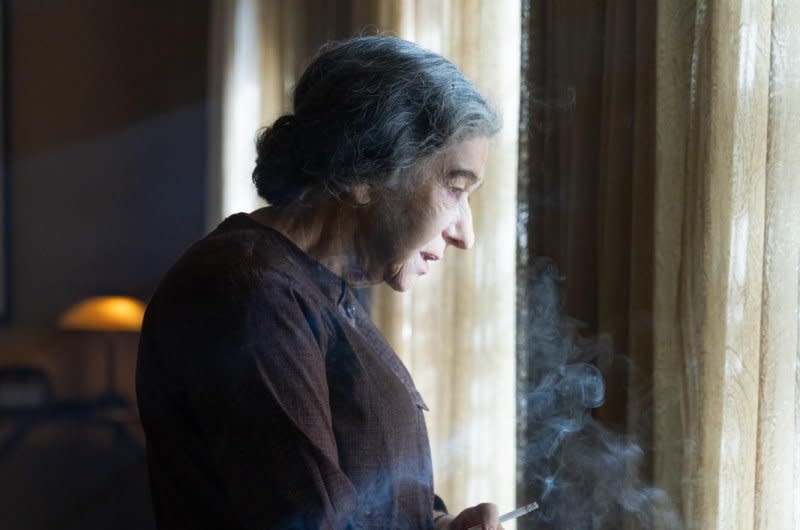
- Oops!Something went wrong.Please try again later.
LOS ANGELES, Aug. 23 (UPI) -- The life and political career of Golda Meir could make for a truly epic movie. Golda, in theaters Friday, chooses a more intimate moment, but still makes it feel relatively epic.
A timeline begins the film, explaining how Israel was established as a state in 1948 and how decades of conflict with Arabs led to the 1967 Arab-Israeli War. This montage acknowledges Palestinians were forced to flee, lest anyone worry it is one-sided.
In 1974, Meir (Helen Mirren) sits before the Agranat Committee. While more linear than Oppenheimer, Golda does cut back and forth between events of 1973 and the hearing, in which she has hindsight.
On Oct. 5, 1973, the day before Yom Kippur, Meir and her military had word of an attack by Syria and Egypt. Despite the High Holiday, Meir ordered 120,000 troops to be ready.
The attack came earlier than expected on Oct. 6. Meir remained calm and instructed her military to defend Israel as planned.
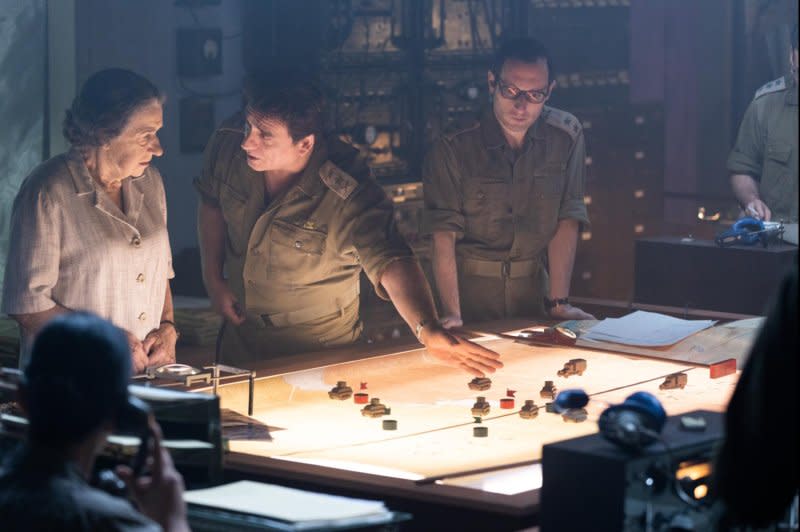
Though Golda does not have the scope, or likely the budget, to depict the massive war, it does a good job establishing the stakes from Meir's perspective. She discusses strategic strikes with General Ariel Sharon (Ohad Knoller) and Head of Mossad Zvi Zamir (Rotem Keinan), laying out their purposes in the overall war.
Minister of Defense Moshe Dyan (Rami Heuberger) witnesses one firefight from a helicopter overhead. Meir and his staff listen to military radios as Syrians and Egyptians win battles, taking many Israeli lives.
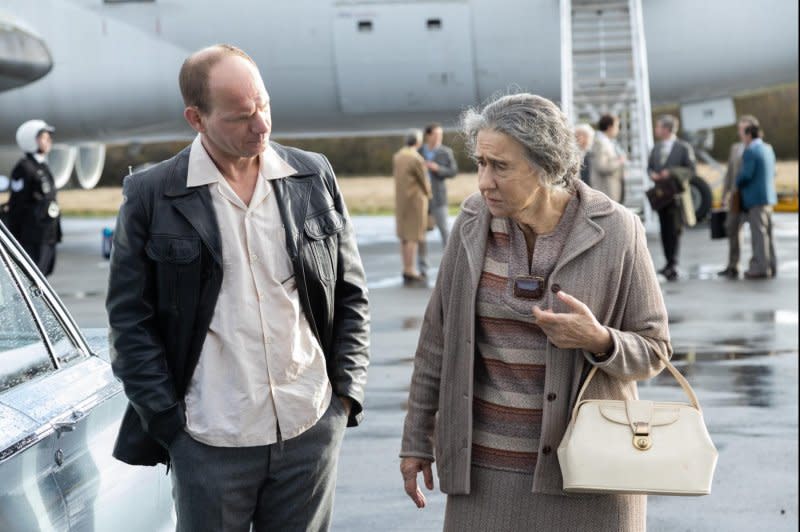
Meir watches one battle unfold over satellite images like a Tom Clancy movie, which would have been inspired by this sort of military technology.
Furthermore, Meir instructs her assistant, Lou Kaddar (Camille Cottin), not to let her be taken alive. So, Meir is not just commanding from afar. She has a contingency for if her offices are breached.
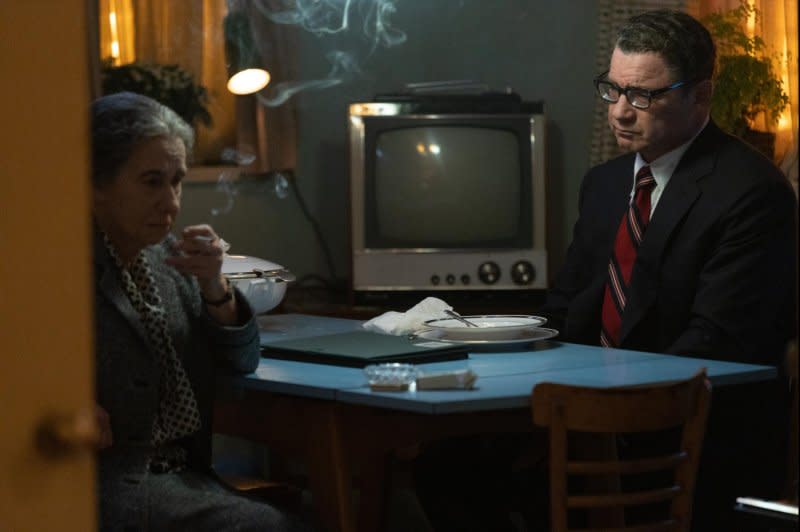
As the war progresses, the script by Nicholas Martin does a good job explaining the politics of the war. Meir insists that no cease-fire would come without Egyptian President Anwar Sadat calling Israel by name.
Furthermore, then U.S. Secretary of State Henry Kissinger (Liev Schreiber) becomes involved, negotiating between the three countries and Russia, which had supplied weapons. At this point, Meir explains the political consequences of an Egyptian victory, and the sides the United States actually is taking.
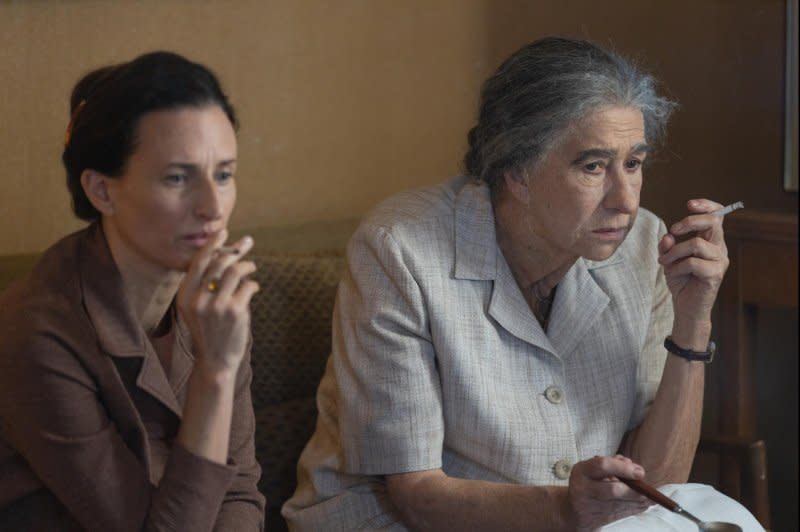
Mirren plays Meir hunched over, shuffles her feet and speaks in a mostly Americanized English, with perhaps a hint of Yiddish accent like one's grandmother might retain. Meir also chain smokes throughout the movie, despite undergoing treatment for lymphoma.
There's precedent for acclaimed movies portraying major events from intimate perspectives. Good Night and Good Luck tackled the McCarthy hearings entirely from the perspective of Edward R. Murrow's broadcasts.
Thirteen Days had a bit more warplane footage, but mostly portrayed the Cuban Missile Crisis from President Kennedy's staff's perspective at the White House. Director Guy Nattiv achieves a similar quality with Golda.
The staging of bureaucratic meetings conveys the monumental decisions at stake. Those briefing sessions become increasingly more chaotic as the war drags on.
Golda may not present the entire life and times of Meir, but there surely are plenty of biographies interested parties can find for further reading. In selecting a significant political event of Israel, Golda highlights Meir's leadership and some context for the ongoing unrest the region still faces.
Fred Topel, who attended film school at Ithaca College, is a UPI entertainment writer based in Los Angeles. He has been a professional film critic since 1999, a Rotten Tomatoes critic since 2001, and a member of the Television Critics Association since 2012 and the Critics Choice Association since 2023. Read more of his work in Entertainment.

